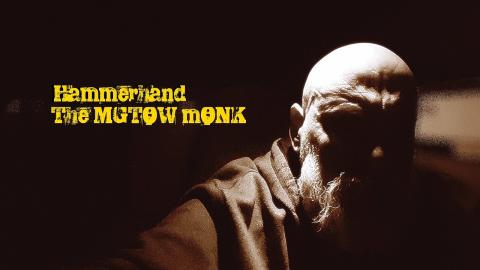The Expanding Frontier Of Marriage - MGTOW
In this video I describe the expansion of the marriage frontier and the need within MGTOW to re-evaluate our conception of marriage.
Square Peg's Video: Top Family Law Official Calls Modern Marriage an Abstraction
https://www.youtube.com/watch?v=H2aHZxTyR7A
Patreon
https://www.patreon.com/ground....work_for_the_metaphy
Paypal
https://www.paypal.com/cgi-bin..../webscr?cmd=_s-xclic
Script
http://www.gftmom.com/portfoli....o-item/the-expanding
Hey Everybody, Marcus here,
It has been the longstanding rule that one can only be MGTOW if and only if one is not married. Though it seems that this is a simple enough rule to understand, I believe, and will defend the case, that we within the MGTOW community need to re-evaluate the concept of marriage as we apply it in this venerable rule of ours.
Just a few days ago Square Peg released a video entitled “Top Family Law Official Calls Modern Marriage an Abstraction.” In his video, Square Peg reads out excerpts from a document discussing the changing nature of marriage and some of the consequences that follow as they related to the family court. I have linked Square Peg’s video in the description.
Now, much like Square Peg, I too was immediately drawn to the verbiage used in the document. Specifically, the notion of looking at marriage as an abstraction. So far, within MGTOW, we have looked upon marriage in the concrete. Namely, one is married by virtue of having signed a concrete marriage contract. The distinction between a married man and an unmarried man was a black and white affair. It is either the case that you have signed a marriage contract or it is the case you have not signed a marriage contract.
Though the one hard rule in MGTOW, namely, that one cannot be married and MGTOW has been consistently upheld as orthodoxy, it has also become clear that co-habitation is disallowed almost as strictly as signing the marriage contract itself. In fact, it could be safely argued that, if it is not already the case, then within a year or so, to be a MGTOW will demand you are neither married nor are you co-habitating with a woman.
But why did this ban on co-habitation slowly creep into the MGTOW orthodoxy? The answer is fairly obvious; namely, the ever-growing universality of common-law marriage laws which in themselves are contingent on co-habitation. It may seem that a MGTOW rule forbidding a man from co-habitating with a woman is an additional requirement on top of the first rule forbidding marriage. However, a ban on co-habitation is nothing more than an extension of the first rule. As such, there is only one rule in MGTOW; that one cannot be married and MGTOW. The ban on co-habitation, in turn, is nothing but a logical consequence of the first rule.
Now, the reason I have pointed out the adoption of a co-habtation ban making its way into MGTOW orthodoxy is because it exposes the outdated quality of our understanding of the MGTOW ban on marriage. Marriage should not be considered as a concrete, black and white, delimited concept within MGTOW. Much like the authors of the document Square Peg was reading from in his video, marriage ought to be considered as an abstraction.
We ought to avoid all forms of marriage to women and not just the traditional marriage contract itself. Let me clarify. The marriage contract is a legally binding agreement between a man and a woman which ultimately, over time, has been weaponized to transfer wealth from men to women. However, the marriage contract is not the only tool that carries this power. This power of wealth transfer comes into force when a man has a child with a woman who he has not commissioned as a surrogate.
This power takes the form of child support payments. In India, as called out in a news piece read out by TFM, a wife who was living in a house owned by her husband’s father, upon divorce, was granted the right to remain in that house. Even though the property was not a marital asset and not even owned by the husband, the judge still decided that it was the family home from which she could not be evicted.
Now, as more and more men swear off the traditional marriage contract, the government, women’s ultimate white knight, will react by expanding the reach of traditionally marriage contract laws to non-marriage contract arrangements. Common-law marriage is such an expansion of that reach. So, when men began to abstained from signing the marriage contract but still lived with their women, the laws were altered to encompass co-habitation under marriage laws. The next extension is occurring with the concept of the meretricious relationship. Though as of today a meretricious relationship is nearly synonymous with common-law marriage in terms of the co-habitation requirement, co-habitation is only one consideration and not necessarily a hard requirement.
0



 4_ArchAngel
4_ArchAngel
 Sandman
Sandman

 Hammerhand
Hammerhand
 Igor MGTOW And Video Games
Igor MGTOW And Video Games



 CanalMGTOWBrasil
CanalMGTOWBrasil

 Redonkulas Popp
Redonkulas Popp


 TheRedKnight
TheRedKnight![Jus 'cuz [ a reply to the trollers ] -> MGTOW](https://cdn.mgtow.tv/upload/photos/2024/11/ZZLHylIRaqyQAIbh4pyv_15_87825f1f176ee963d1f1c44a7254147f_image_thumb_high.jpg)








Log in to comment